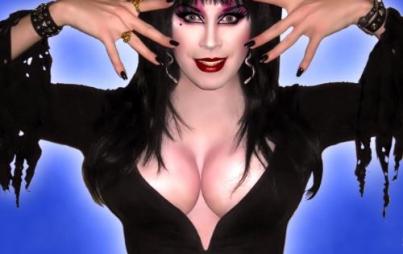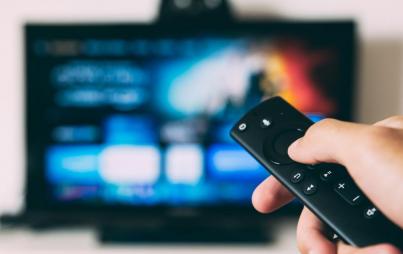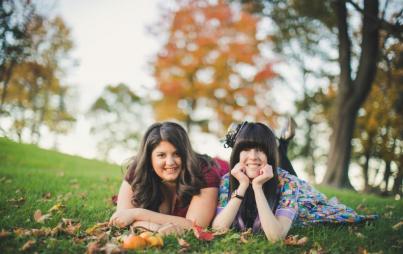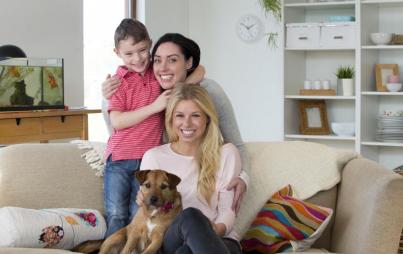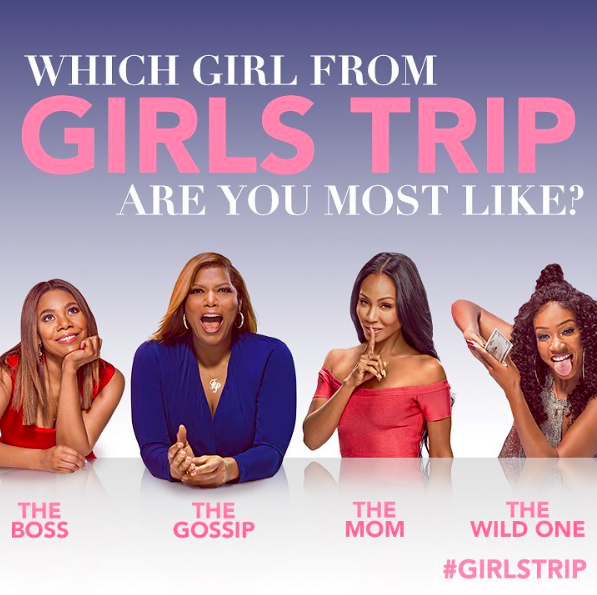
Image: Instagram/ girlstripmovie
Girls Trip is for every girl who's ever had a #squad.
All of my best friends are out-of-state, so I went to see the movie with my current bestie, my husband. For years, I’ve voluntarily sat through every single chick flick wherein an all-white cast of girlfriends gets into shenanigans and hijinks. I’ve watched them fall in love, get wasted, fall apart laughing… and in the end, the message of female friendship has always resonated with me because I absolutely adore my circle of friends. It wasn't much of a stretch of the imagination to separate my race from the white leads to identify with them, and this was the only option available to me; representation of the “carefree black girl” in film has been pretty nonexistent until now.
I wasn’t surprised that there was never a visibly Black female lead; I knew I could always count on the token Black girl to bring zesty one-liners and comedic relief — some of which were unintentional, given the bevy of stereotypes the screenwriters often used to characterize the “Black friend.” In some ways, it didn’t matter — my friends and I were determined to have a good time with each other regardless of who was starring. As the token Black friend in my own group of friends, the characters I saw portrayed on screen provided limited representation for me, but I didn’t expect anything more.
Before Girls Trip, I had given up hope that I would ever see three-dimensional depictions of a fictional Black girl experiencing heartache, pain, drama, and sadness.
Girls Trip is such an authentic portrayal of friendship and adventure — and for once, it is from the perspective of an ensemble cast of hilarious Black women.
I have never before had the experience of looking up at the silver screen and seeing a group of girlfriends who all had their own distinct personalities, each with traits that I could see in myself. The narrative was reminiscent of the Sex and the City craze, when girls would self-identify as a “Carrie” or “Samantha” in their friend groups.
You Might Also Like: Wow I Feel Old: Why Sex And The City Is Now A Period Piece
The movie consists of non-stop laughs and experiences that all women can relate to. More importantly, the film speaks a language that feels sincere to me; there are scenes in which Regina Hall has to speak in a professional tone publicly, but others where she uses a more relaxed dialect with her girlfriends and husband. Each character displays a full range of emotions, the storytelling is impeccable, and the audience gets to know the characters well. There is also very specific attention to detail, from the artists performing at Essence Fest, like P. Diddy and Maxwell, to the pajamas the women wear to bed — with bonnets and head wraps, of course.
Tracy Oliver, who is the principal writer for another hit, Insecure, spearheaded the making of this movie. She described the film as Bridesmaids meets The Hangover only with Black leading characters, and that’s exactly what she delivers here. Without Oliver advocating that the stories of Black people could transcend race into mainstream entertainment — even before Shonda Rhimes — it may have never been made.
As a creative Black woman, it’s not just seeing representation of Black women that touches my soul; I walked out of the theatre feeling like one day something I write will be seen by all people, and that my art won't be pigeonholed to one audience because I am a Black woman with a unique experience.
Nothing about the production process happened by chance: The creative forces behind the film pushed extremely hard to get this movie made and created by Black writers. Much like the success of Get Out, this film is a hit because it’s inclusive. Both movies are able to speak solely to Black people while being enjoyable for other bystanders. This is something that I have noticed is prevalent in art that is created by people who have lived the experience of the stories they are telling.
The movie opened at number one and smashed all expectations. Rough Night was what industry insiders call a “twin movie.” It has almost an identical premise surrounding hijinks and A-List celebrities out for a girls reunion. Zoe Kravitz is the Black actress in the film, and her presence combined with a leading role by Scarlett Johansson should have been enough to guarantee a hit. Unfortunately, Rough Night is something we’ve seen a million times, and it lacks the intersectional appeal that Girls Trip possesses. It also seems a bit archaic, considering the underlying plot revolves around killing a sex worker for laughs. All of it added up to be the perfect storm, and it was a flop.
In an earlier interview, Tiffany Haddish, the breakout star of Girls Trip, described the differences between the two movies in her own words.
“They’re very different films, they’re just coming out rather close to each other,” Haddish said. “I honestly don’t think they’re similar at all. In our movie, the women are the stars; they’re the funniest part of the movie. When you walk out of Girls Trip, you’re going to feel like you had such a great time and like it was a blast.”
And that is exactly what happened. I cried in the first five minutes, watching imaginary vignettes of Queen Latifah and her crew, which made me miss the good old days with my gal pals. Not to mention that the end of the film is also a tearjerker, displaying the trials and tribulations all girl groups go through.
Prior to this, movie studios have been blaming R-ratings as the reason that all of the summer comedies have been duds. But after this weekend, we have evidence that this isn't the case. Diversity and inclusiveness wins; it’s obviously what the people want. The movie is being hailed as breaking the R-Rated summer comedy curse, opening at a smashing $30.4 million. (The film only cost $20 million to make.)
I look forward to the underestimation of Girls Trip being the catalyst for chipping away at Hollywood’s tradition of whitewashing, and I also look forward to sharing my lived experiences with other cultures through film and TV. Everyone should be able to relate to this movie, regardless of the fact that the stars may not look like the audiences that Hollywood traditionally panders to.
So gather up your best group of friends and go see this — as the movie’s tagline cheekily suggests, “You’ll be glad you came.”
Related:
-
5 Tips For Making Grown-Up Friends
-
What’s Not Said: It’s So Hard To Make New Friends
-
10 Questions You've Always Wanted To Ask Your Black Friend



